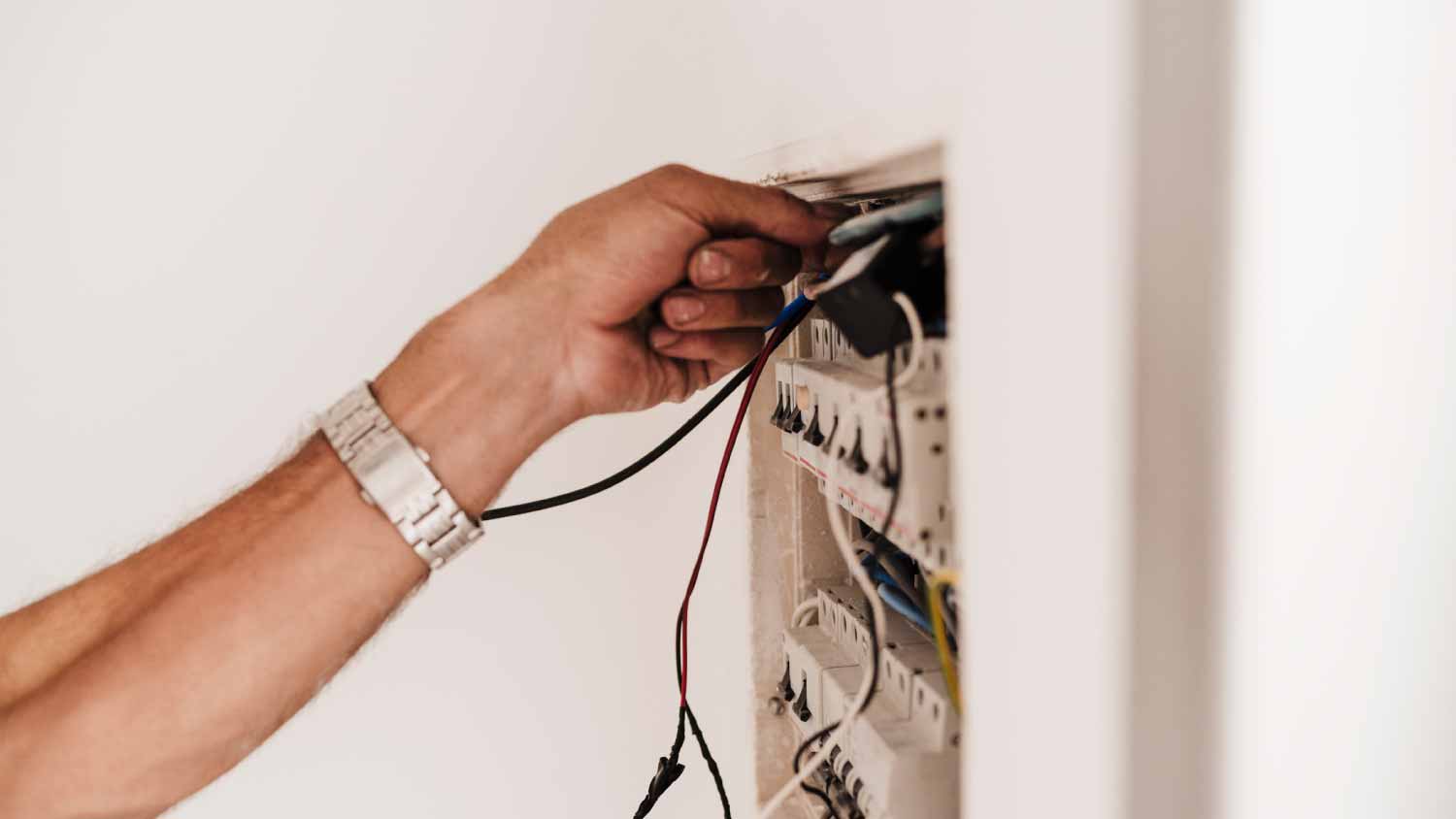
How much does rewire house cost in Columbus? Learn the major factors that impact the price and how it can help increase your home's value.
Uncover the causes and effects of a ground fault


A ground fault occurs when electricity moves unexpectedly to the ground without resistance.
If you have a tripped circuit breaker, unplug your appliances.
A ground fault can be caused by damage to an appliance, fixture, or wiring in your home.
Using GFCI outlets where needed and using a licensed electrician can help you avoid a ground fault.
If you’re scratching your head wondering, “What is a ground fault?” then you’re in the right place. It’s important to understand the causes and source of a ground fault so that you can prepare for them properly. Luckily, our guide will help you identify and manage this abnormal flow of electricity.
A ground fault is when electricity from a live circuit, like an outlet or a light fixture, travels to the ground accidentally. For this type of fault to happen, a live or hot wire makes contact with a ground wire or with a part of an appliance that is making contact with the ground, usually through a metal frame. Electricians may define ground faults slightly differently, as a situation where a hot wire comes in contact with the grounding wire or a grounded part of the system.
In rare circumstances, a person can act as the path of least resistance to the ground, causing electrical shock. Electricity will then flow without resistance to the ground, causing your circuit breaker to pop.
A ground fault can be caused by various types of damage or wear to your home’s electrical system or a device that’s plugged into the system. Some common causes for this type of electrical danger are:
Damage or wear to an appliance
Water damage to the electrical box or outlets in your home
Wear to the insulation on your home’s wiring
Loose wire within an outlet or a loose connection in a light switch
Damage from pests
Improperly installed wiring
Looking for the cause of your home’s ground fault? If you think an appliance is causing a ground fault, the first thing to do is to unplug everything from the outlets connected to the circuit with the tripped breaker. If any of your appliances show obvious signs of wear, that’s likely your culprit, but sometimes it’s difficult to see interior damage.
If once everything is unplugged and switched off, the breaker still trips, the problem is likely within the electrical wiring itself. You should leave the breaker in the “off” position and check the outlets and switches to see if those have any loose wires or other damage. If the breaker stays on with everything unplugged, try plugging appliances in one at a time until you find the one causing the breaker to trip.

If you locate the problem with a specific appliance, outlet, switch, or fixture, you should be able to reset the circuit breaker once the appliance is unplugged or the switch or fixture is replaced.
However, if all of the appliances are unplugged and your breaker is still tripping, you could have a more serious problem with your electrical system. A recurring ground fault that repeatedly trips the circuit breaker can be dangerous and cause other issues in your home, so you should hire a professional electrician near you to address it as soon as possible. While it’s possible to DIY ground fault fixes like resetting the circuit breaker, you should leave all major electrical diagnoses and fixes to a licensed electrician.
Now that you know what causes a ground fault, it’s time to put household measures in place to prevent one from occurring. Follow these prevention methods for best results:
Install GFCI outlets: You should use ground fault circuit interrupter (GFCI) outlets to protect your home from ground faults, especially in areas that might come in contact with water, like kitchens and bathrooms.
Test ground fault equipment: If you want to ensure your home is protected from ground faults, consider hiring a professional electrician to inspect and test your ground fault equipment.
Inspect appliances and wiring frequently: Staying vigilant for loose wires, water damage, and faulty appliances can help you prevent a ground fault and maintain a safe home.
From average costs to expert advice, get all the answers you need to get your job done.

How much does rewire house cost in Columbus? Learn the major factors that impact the price and how it can help increase your home's value.

Ring a bell? From replacing a wired doorbell to setting up a smart home system, learn about typical doorbell installation costs, including materials and labor.

How much does adding an electrical outlet cost in Columbus? Get details on average pricing, permit needs, and what affects the total cost.

Ready to upgrade your front door and learn how to wire a doorbell? You may be able to handle this relatively simple DIY installation without an electrician.

Discover how to upgrade your electrical panel for added convenience and to help increase the safety of the electrical system in your home.

When it comes to precise measurements, you need a precise tool. A micrometer can definitely come in handy, so learn how to read a micrometer here.